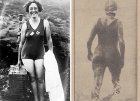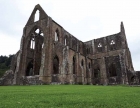Society
How people group together, organise their rules and systems are all part of what create a society. In this section articles examine the nature of society how it interacts with other themes of culture, power, etc. and how societies have developed and changed over time. The structures of the ancient world are explored as are the complex feudal systems and the varied societies of Empire and modernity.
Sort by:
Date (Newest first) | Title A-Z
Show:
All |
Articles |
Podcasts |
Multipage Articles
-

When was the post-war?
ArticleClick to view -

Who only history know? Cricket, society, and the historical oversight of sport
ArticleClick to view -

Willington and the Mowbrays: After the Peasants’ Revolt
ArticleClick to view -

Women and the French Revolution: the start of the modern feminist movement
ArticleClick to view -

Women, education and literacy in Tudor and Stuart England
ArticleClick to view -

Women’s friendship in late eighteenth-century America and its relevance to lockdown
ArticleClick to view -

Writing Lilian Harrison into history
ArticleClick to view -

‘A little bird told me’: spies and espionage in the early medieval world
ArticleClick to view -

‘The cradle of the Industrial Revolution’
ArticleClick to view -

‘The story of her own wretchedness’: heritage and homelessness
ArticleClick to view

